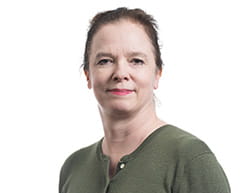Octopus Group works across a number of areas, including as a landlord in the senior care sector and as a renewable energy asset manager.
Trowers & Hamlins talk to Mark Williams, Head of Institutional Funds Distribution, Octopus Investments; Michael Toft, Head of Care homes; and Jacob Hurtley, Property & ESG Manager, Octopus Real Estate about where and how social value fits into their investment strategy.
How do you define social value?
Mark Williams: We’ve always been a strong values-based business and are proud to have been accredited as a B Corp earlier this year.
It’s a long process to achieve accreditation, but it’s about being a business that isn’t entirely motivated by profit but balances profit with the interests of other stakeholders such as customers, the community, employees and the environment.
Michael Toft: Real estate is a big contributor to carbon emissions, so the onus is on the E of ESG and reducing our carbon footprint. Currently, more of our institutional peers are covering the E. We are trying to push to the right across the ESG spectrum, not just the E.
How do you assess the social impact of your investments?
MT: I don't think a lot of funds have the capability to measure social impact. However, we're very lucky with our care home strategy because it is fundamentally meeting societal needs. There is an undersupply of care home beds in the UK, and we're able to measure the number and quality of care beds that we're delivering to meet this demand
Jacob Hurtley: We assess the number of quality care beds that we've contributed, and we compare that quarterly against the total number of new and existing registered care beds across the country. Within Octopus Real Estate, we have our own clinical assurance team, which has oversight across all of our homes to ensure they continue to deliver quality care.
The clinical assurance team provide us with a measure of the operators' commitment, which helps to guide our value as well. We are one of the only funds that have this function.
MT: We wouldn't be comfortable operating in the elderly care market without an in-house clinical team. And that is from the social perspective and the risk perspective: Which operators do we have within the portfolio? Are they providing the right standard of care? Is there a risk of CQC (Care Quality Commission) ratings being downgraded?
What is the next challenge for Octopus in delivering social value?
MT: Social care has been making a lot of news headlines, and there are funding and staffing issues within the market, so a challenge would be to help overcome those problems.
Our current strategy focuses on areas where occupancy levels are predominantly achieved through residents self-funding their residency. A future challenge is to deliver a strategy within the care home market where residents are reliant on local authority funding to meet their occupancy costs.
MW: More widely within the Octopus Group, we've made a commitment that all new products from here will have a demonstrable positive impact. That might not be specifically social value, it might be environment as well.
We have nothing in our existing product stable that we're not proud of, but we have products that don't necessarily deliver positive impact right now. We run real estate debt portfolios for example, which are fantastic assets, but not something that necessarily delivers a positive impact.
But we'd like to steer ourselves increasingly in that direction of having a positive impact, and that comes from a place of being a values-based organisation.
We want to have a business that we're proud to tell our grandchildren about. We want to be able to look back and reflect that we've made a real difference.
Our mission is to invest in people, ideas and industries that will change the world. And that can be misconstrued as a glib thing to say, but it runs through everything we try to do now.
Are there conflicts between risk and returns when pursuing social value as part of an investment strategy?
MT: If an investment we are considering meets our target financial returns but fails to meet out clinical requirements the clinical view will take priority over the financial return.
So there's an inherent conflict within our team, but the social value is key to the long term viability of the fund. It gives us a more secure product because we’re not taking that risk with the operator, and that isn’t feeding through to the social care being provided.
And there is a lesson in that you have to be brave and stick by your views and support what you are trying to achieve with social value.
